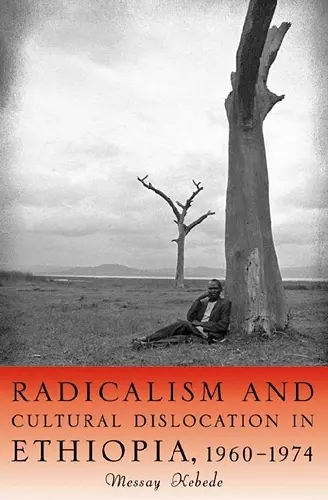Radicalism and Cultural Dislocation in Ethiopia, 1960-1974
Format:Hardback
Publisher:Boydell & Brewer Ltd
Published:1st Nov '08
Currently unavailable, and unfortunately no date known when it will be back

A provocative investigation into the root causes of the Ethiopian political upheavals in the second half of the twentieth century. During the 1960s and early 1970s, a majority of Ethiopian students and intellectuals adopted a Marxist-Leninist ideology with fanatic fervor. The leading force in an uprising against the imperial regime of Emperor Haile Selassie,they played a decisive role in the rise of a Leninist military regime. In this original study, Messay Kebede examines the sociopolitical and cultural factors that contributed to the radicalization of the educated elite in Ethiopia, and how this phenomenon contributed to the country's uninterrupted political crises and economic setbacks since the Revolution of 1974. Offering a unique, insider's perspective garnered from his direct participation in thestudent movement, the author emphasizes the role of the Western education system in the progressive radicalization of students and assesses the impact of Western education on traditional cultures. The most comprehensive study of the role of students in modern Ethiopian political history to date, Radicalism and Cultural Dislocation in Ethiopia, 1960-1974 opens the door for discussion and debate on the issue of African modernization and the effects ofcultural colonization. Messay Kebede is Professor in the Department of Philosophy at the University of Dayton and is author of Survival and Modernization -- Ethiopia's Enigmatic Present: A Philosophical Discourse [1999].
This book will be of interest to several audiences. Specialists will welcome it as a provocative theorization of a critical period in the region's intellectual history . . . But Kebede also engages larger questions in African intellectual history, and this work is of particular interest as a study of the encounter between traditional knowledge and modernity. . . . This is a rich work that succeeds in situating a remarkable chapter in Ethiopian history in a broader, comparative context. -- James De Lorenzi * INTERNATIONAL JOURNAL OF AFRICAN HISTORICAL STUDIES *
Overall, this is a thoughtful, provocative and insightful book, essential reading for anyone interested in Ethiopia during the revolutionary years of the 1960s and 1970s, and the era of political radicalisation in Africa and Asia more broadly. -- Richard Reid in Institute of Historical Research
[see the complete review at http://www.history.ac.uk/reviews/paper/reidr.html] * . *
In this engaging and necessary book, Messay Kebede boldly argues that Ethiopian intellectuals failed disastrously in their revolutionary métier for lack of originality, creativity, and authenticity. It is a stirring interpretation bound to delight and infuriate, but even those who disagree with its point of view will find much that is informative and illuminating. Extensive in analysis and unsparing in clarity, this is a work of impressive range and depth. It is hard to think of a more significant contribution on this highly controversial subject. -- Gebru Tareke, Professor of History, Hobart and William Smith Colleges
No one concerned with the fate of contemporary Ethiopia and indeed of the nature of modern revolutionary ideologies will want to miss this eye-opening account. Marshaling a trove of little-known data and a circumspect selection of theoretic insights, Messay Kebede offers an instant benchmark in the contemporary history of this troubled nation in his artfully crafted work. -- Donald N. Levine, Peter B. Ritzma Professor of Sociology, University of Chicago, and author of Greater Ethiopia
ISBN: 9781580462914
Dimensions: unknown
Weight: 518g
252 pages